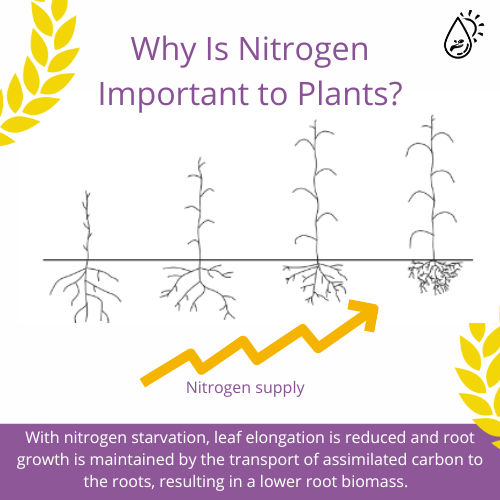![]() About 1-5% of total plant dry matter consists on nitrogen, which is the
About 1-5% of total plant dry matter consists on nitrogen, which is the
second highest required element in plants, second only to carbon. Nitrogen is
essential for plant metabolism as a constituent of proteins, nucleic acids,
chlorophyll, co-enzymes, phytohormones and secondary metabolites. When taken
up as either ammonium or nitrate, nitrogen is assimilated into amino acids in
either the roots or shoots.
![]() Research Highlights:
Research Highlights:
![]() The availability of nitrogen to roots is a decisive factor for plant growth.
The availability of nitrogen to roots is a decisive factor for plant growth.
Atmospheric N2 is only available to plants that are capable of forming
symbiosis with N2-fixing bacteria.
![]() In addition to inorganic nitrogen acquisition, uptake of organic nitrogen
In addition to inorganic nitrogen acquisition, uptake of organic nitrogen
also contributes to plant nutrition. Organic nitrogen is the main form of
nitrogen in soils: in the organic matter and in the form of peptides and
proteins, amino acids, and the urea.
![]() To achieve efficient plant growth, development, and reproduction, adequate,
To achieve efficient plant growth, development, and reproduction, adequate,
not excessive, amounts of nitrogen are required. Plants that are deficient in
nitrogen display stunted growth with narrow leaves, a pale green or even a
pale green or yellow coloring, and a low canopy.
![]() Generally, a uniformly high nutrient supply suppresses root branching.
Generally, a uniformly high nutrient supply suppresses root branching.
However, when overall nitrogen availability is limited, plants may respond by
enhancing lateral root development into nitrogen-rich patches.
![]() Image: Schematic representation of shoot and root growth in cereal plants
Image: Schematic representation of shoot and root growth in cereal plants
with an increasing nitrogen supply.
